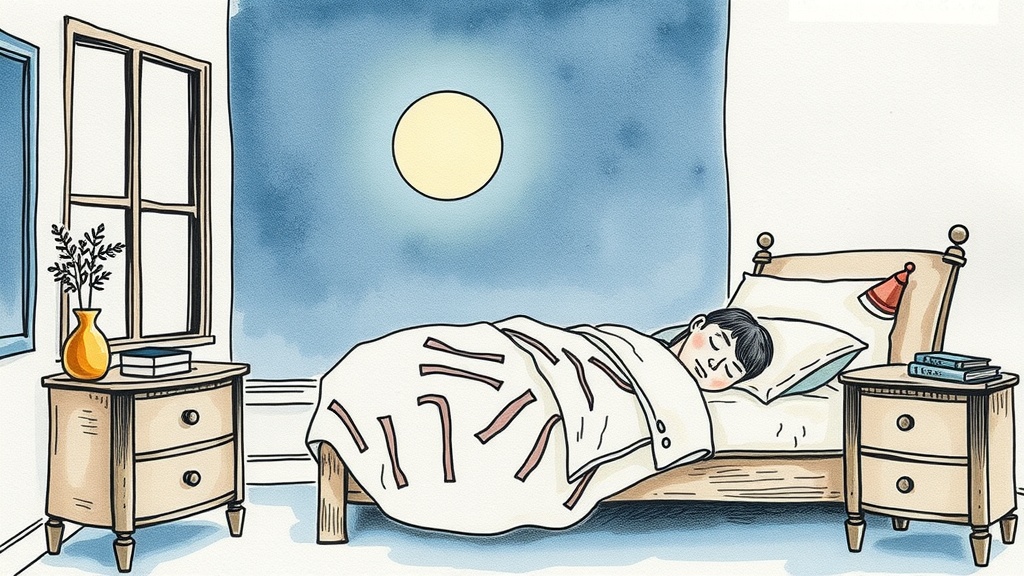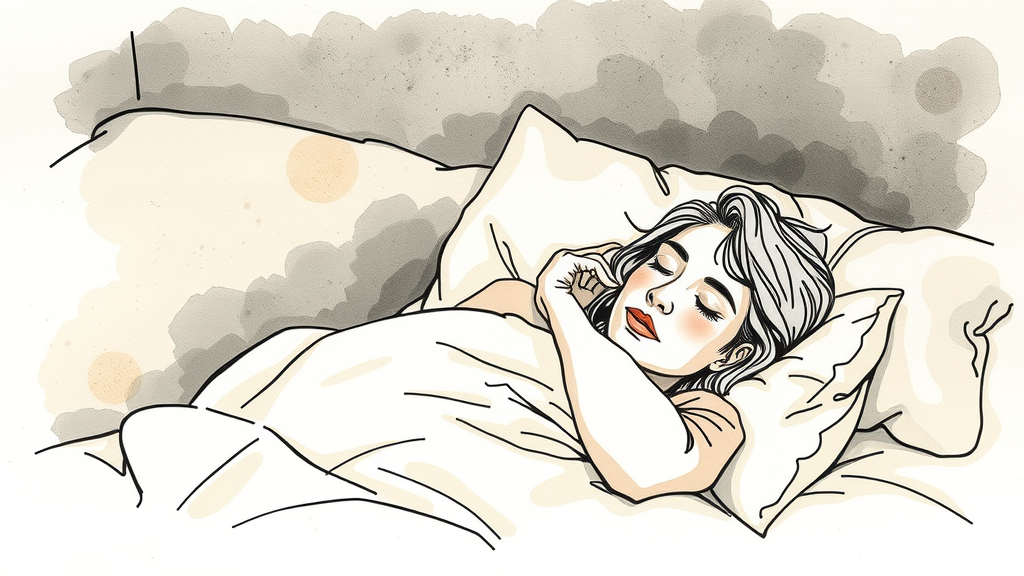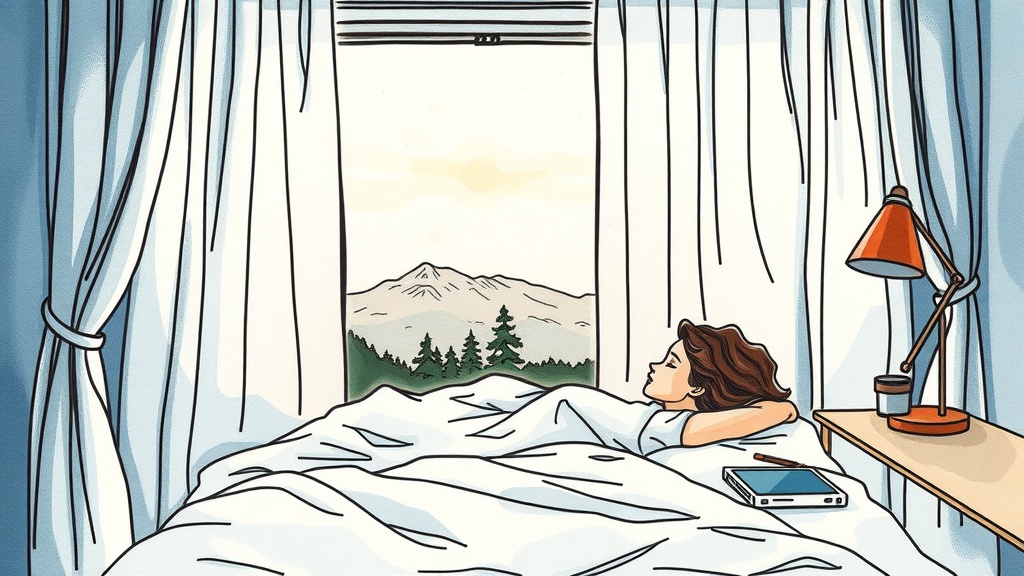· Don Schmidt · Guides · 9 min read
What is a Drug-Free Sleep Treatment? Your Guide to Restful Nights
Discover drug-free sleep treatments for restful nights. Learn about CBT-I, natural strategies, and how to improve your sleep without medication.
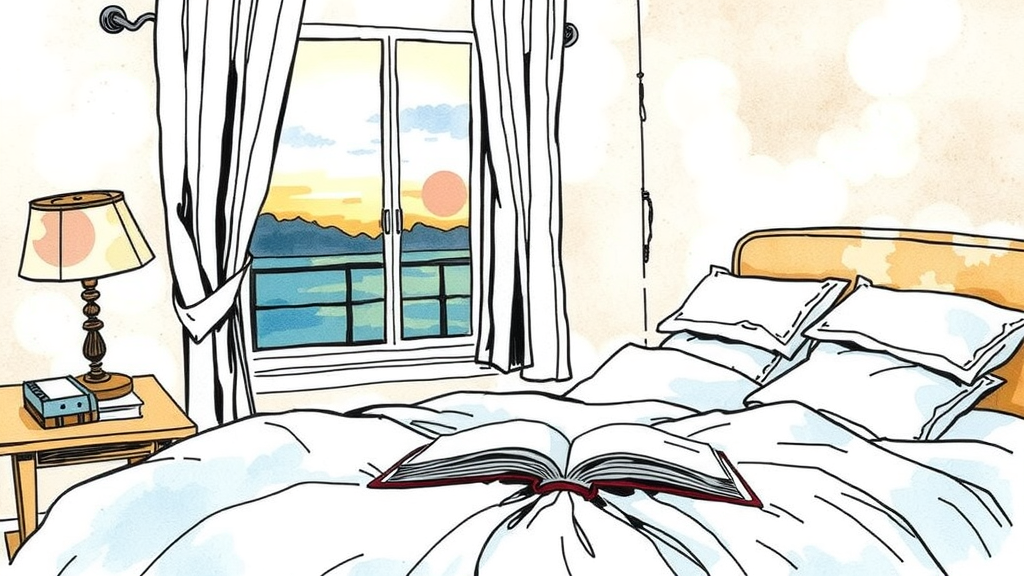
Understanding Drug-Free Sleep Treatment
Are you tired of restless nights, tossing and turning, and waking up feeling anything but refreshed? For many, the immediate thought turns to sleep aids or medication. However, there’s a growing awareness and preference for a drug-free sleep treatment approach. This comprehensive guide will explore what drug-free sleep treatment entails, why it’s gaining traction, and how it can help you achieve the consistent, restorative sleep you deserve without relying on pills.
Insomnia and other sleep disturbances affect millions worldwide, impacting daily functioning, mood, and overall health. While prescription and over-the-counter sleep medications offer a quick fix, they often come with side effects, the risk of dependence, and don’t address the root causes of sleep problems. This is where drug free sleep therapy steps in, offering sustainable, long-term solutions that empower individuals to reclaim their sleep naturally.
Why Choose a Drug-Free Approach to Sleep?
Opting for a drug-free sleep treatment is a decision many make when considering the potential downsides of pharmacological interventions. While sleep medications can be beneficial for short-term, acute insomnia, their long-term use presents several challenges:
Avoiding Side Effects and Dependence
Sleep medications can cause a range of side effects, including daytime grogginess, dizziness, memory problems, and even rebound insomnia when discontinued. More critically, prolonged use can lead to physical or psychological dependence, making it harder to sleep without them. A drug-free approach eliminates these risks, focusing instead on sustainable behavioral and cognitive changes.
Addressing the Root Causes
Medication often masks symptoms rather than solving the underlying issues contributing to poor sleep. Whether it’s stress, poor sleep habits, anxiety, or specific thought patterns, a comprehensive drug free sleep therapy identifies and addresses these root causes. This leads to more profound and lasting improvements in sleep quality.
Empowering Self-Management
Through drug-free methods, individuals learn valuable self-management skills. These skills not only help with current sleep issues but also equip them to handle future sleep disturbances, fostering a sense of control and self-efficacy over their sleep health.
The Cornerstone of Drug-Free Sleep Therapy: CBT-I
When it comes to effective drug free sleep treatment, Cognitive Behavioral Therapy for Insomnia (CBT-I) stands out as the gold standard. It’s a structured program that helps you identify and replace thoughts and behaviors that cause or worsen sleep problems with habits that promote sound sleep.
What is CBT-I?
CBT-I is a short-term, evidence-based therapy that typically involves several sessions with a trained therapist. Unlike traditional sleeping pills, which primarily target symptoms, CBT-I sleep therapy addresses the psychological and behavioral factors that contribute to insomnia. For a deeper dive into this transformative therapy, you can explore /what-is-cbt-i.
Key Components of CBT-I
CBT-I typically incorporates several techniques, often tailored to individual needs:
- Stimulus Control Therapy: This technique aims to strengthen the association between the bed/bedroom and sleep. It involves strict rules like going to bed only when sleepy, using the bed only for sleep and sex, and getting out of bed if you can’t sleep after 20 minutes.
- Sleep Restriction Therapy: Counter-intuitively, this involves initially restricting the amount of time spent in bed to create a mild state of sleep deprivation. This increases sleep drive and consolidates sleep. As sleep efficiency improves, the time in bed is gradually increased.
- Cognitive Restructuring: This component helps identify and challenge negative thoughts and beliefs about sleep (e.g., “I’ll never get a good night’s sleep,” “I must get eight hours of sleep”). Therapists help patients replace these unhelpful thoughts with more realistic and positive ones.
- Sleep Hygiene Education: While not the sole focus, good sleep hygiene practices are an essential foundation. This includes advice on creating an optimal sleep environment, avoiding caffeine and alcohol before bed, and maintaining a consistent sleep schedule.
- Relaxation Training: Techniques like progressive muscle relaxation, diaphragmatic breathing, and mindfulness meditation are taught to reduce somatic and cognitive arousal that interferes with sleep.
Understanding /how-does-cbt-i-work-understanding-this-powerful-sleep-therapy involves appreciating the synergy of these components, which together reshape a person’s relationship with sleep and their sleep environment. This powerful sleep therapy has proven effective for a wide range of individuals seeking a drug free sleep treatment.
Complementary Drug-Free Sleep Strategies
While CBT-I is incredibly effective, several other drug free sleep therapy strategies can complement its effects or be pursued independently to improve sleep quality.
Optimizing Your Sleep Environment (Sleep Hygiene)
Creating an ideal sleep sanctuary is crucial. This involves:
- Darkness: Ensure your bedroom is as dark as possible. Use blackout curtains or an eye mask.
- Quiet: Minimize noise with earplugs, white noise machines, or soundproofing.
- Cool Temperature: Most people sleep best in a cool room, typically between 60-67°F (15-19°C).
- Comfort: Invest in a comfortable mattress, pillows, and bedding.
- Declutter: Keep your bedroom tidy and free of distractions like work materials or screens.
Relaxation Techniques and Mindfulness
Reducing stress and winding down before bed are vital for natural sleep.
- Mindfulness Meditation: Practicing mindfulness can help calm a racing mind and reduce anxiety that interferes with sleep.
- Deep Breathing Exercises: Simple techniques like diaphragmatic breathing can activate the parasympathetic nervous system, promoting relaxation.
- Progressive Muscle Relaxation: Tensing and relaxing different muscle groups can release tension throughout the body.
- Gentle Yoga or Stretching: A light stretching routine before bed can alleviate physical tension.
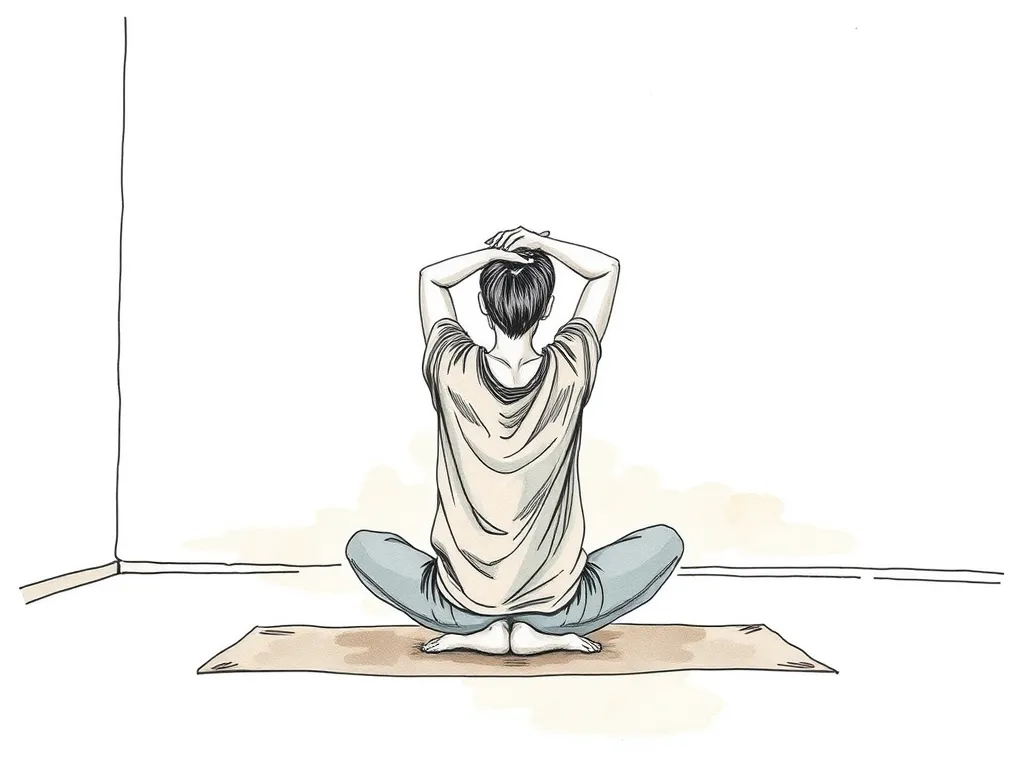
Lifestyle Adjustments for Better Sleep
Your daily habits significantly impact your sleep at night.
- Consistent Sleep Schedule: Go to bed and wake up at the same time every day, even on weekends. This regulates your body’s natural sleep-wake cycle (circadian rhythm).
- Regular Exercise: Engage in moderate exercise most days of the week, but avoid intense workouts close to bedtime.
- Balanced Diet: Avoid heavy meals, spicy foods, or excessive sugar close to sleep. Limit caffeine and alcohol, especially in the afternoon and evening.
- Limit Screen Time: The blue light emitted from electronic devices can suppress melatonin production. Power down screens at least an hour before bed.
- Daylight Exposure: Get natural light exposure, especially in the morning, to help regulate your circadian rhythm.
Who Benefits from Drug-Free Sleep Treatment?
A drug free sleep treatment approach is suitable for a wide range of individuals, including:
- Those Seeking Alternatives to Medication: People concerned about the side effects, dependency risks, or long-term efficacy of sleep medications.
- Individuals with Chronic Insomnia: For those whose sleep problems have persisted for months or years, drug-free strategies offer a sustainable solution.
- People with Co-existing Conditions: Insomnia often co-occurs with other health issues. For instance, /the-ultimate-guide-to-cbti-sleep-therapy-for-seniors can be particularly beneficial as older adults are more susceptible to medication side effects and polypharmacy. Similarly, individuals grappling with anxiety often find relief through specialized approaches like /the-ultimate-guide-to-cbti-sleep-therapy-for-managing-anxiety-induced-insomnia, as it addresses both the anxiety and the sleep disturbance. Even for those dealing with persistent physical discomfort, exploring how /the-ultimate-guide-to-cbti-sleep-therapy-for-people-with-chronic-pain can alleviate sleep issues related to discomfort is a promising avenue.
Finding a Qualified Practitioner and Getting Started
Embarking on a drug-free sleep treatment journey often begins with consulting a healthcare professional. A sleep specialist, a psychologist trained in CBT-I, or a behavioral sleep medicine specialist can provide personalized guidance. They can accurately diagnose the type of insomnia you’re experiencing and recommend the most appropriate drug free sleep therapy strategy.
Look for practitioners certified in behavioral sleep medicine or with extensive experience in CBT-I. Many healthcare systems and university hospitals have sleep clinics with these specialists. Online CBT-I programs, sometimes guided by a therapist, are also becoming more widely available, offering accessibility for many.
The Path to Restful Sleep: Patience and Persistence
It’s important to set realistic expectations. While some individuals experience rapid improvements with a drug-free sleep treatment, for many, it’s a gradual process that requires patience and persistence. There might be nights where sleep doesn’t come easily, but consistency in applying the learned strategies is key.
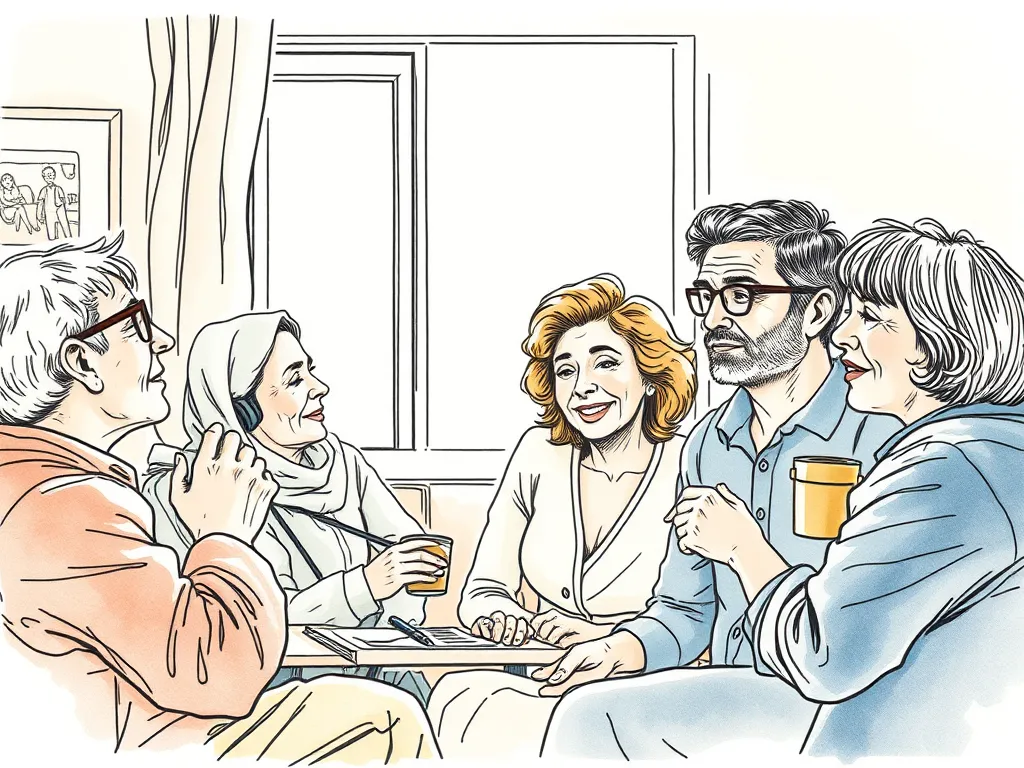
Think of it as learning a new skill. Just as it takes time to master a musical instrument or a new language, retraining your brain and body for better sleep requires commitment and practice. Celebrate small victories, stay consistent with your efforts, and remember that setbacks are a normal part of the process. The long-term benefits of improved health, mood, and cognitive function are well worth the effort.
Conclusion
Choosing a drug-free sleep treatment represents a powerful commitment to your overall well-being. By focusing on sustainable strategies like CBT-I, optimizing your sleep environment, adopting healthy lifestyle habits, and employing relaxation techniques, you can address the root causes of insomnia and cultivate lasting, restorative sleep. This approach not only liberates you from the reliance on sleep medications but also empowers you with the knowledge and skills to manage your sleep health proactively. Embrace the journey towards naturally restful nights, and rediscover the profound benefits of quality sleep.
Frequently Asked Questions About Drug-Free Sleep Treatment
Q1: Is drug-free sleep treatment effective for chronic insomnia?
A1: Yes, absolutely. Cognitive Behavioral Therapy for Insomnia (CBT-I) is considered the most effective long-term drug free sleep treatment for chronic insomnia, often outperforming medication in sustained results. It addresses the underlying causes rather than just the symptoms.
Q2: How long does it take for drug-free sleep therapy to work?
A2: The timeframe varies for individuals. While some may see improvements within a few weeks, significant and lasting changes typically take 6-12 weeks of consistent application of the techniques. Patience and adherence to the program are crucial.
Q3: Can I combine drug-free methods with sleep medication?
A3: Initially, some individuals might be taking sleep medication when starting a drug free sleep treatment like CBT-I. However, the goal of drug-free therapy is often to reduce or eliminate the need for medication. Any changes to medication should always be done gradually and under the guidance of a healthcare professional.
Q4: Are there any side effects to drug-free sleep treatment?
A4: Unlike medication, drug-free sleep treatments like CBT-I have no significant side effects. Some components, like sleep restriction, might cause temporary fatigue in the initial phase, but this is part of the therapeutic process and typically resolves as sleep improves. The overall impact is positive, leading to improved mental and physical health.
Q5: Where can I find a qualified CBT-I therapist?
A5: You can ask your primary care physician for a referral, search for certified behavioral sleep medicine specialists through professional organizations, or look for sleep clinics associated with major hospitals or universities. Online CBT-I programs, some guided by therapists, are also increasingly available.
Assess Your Sleep Quality Today
Take our My Sleep Health Score assessment to get personalized insights about your sleep patterns and discover how CBT-I can help you achieve better sleep.
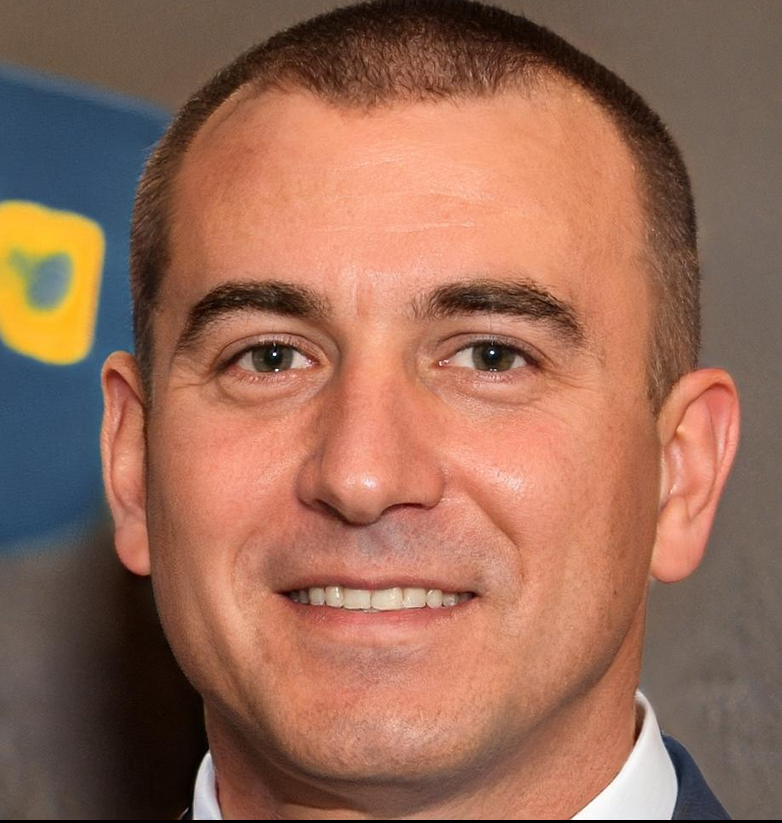
Don Schmidt
15+ years of experience in sleep therapy and Cognitive Behavioral Therapy for Insomnia (CBT-I). Passionate about connecting individuals struggling with sleep disorders to evidence-based, non-medical treatment solutions. Author of hundreds of articles and comprehensive guides on sleep health, CBT-I techniques, and overcoming insomnia. When not helping clients achieve better sleep, you can find me hiking with my family and dogs or enjoying a good book.
Ready to connect with a provider?
Allow us to connect you with a provider who can help.
